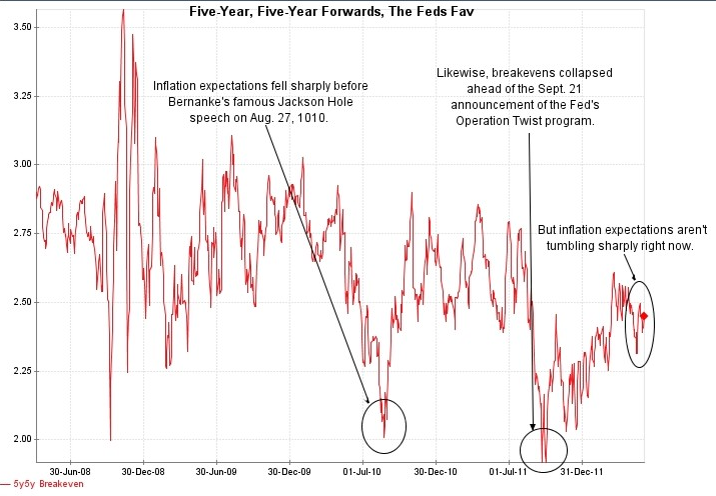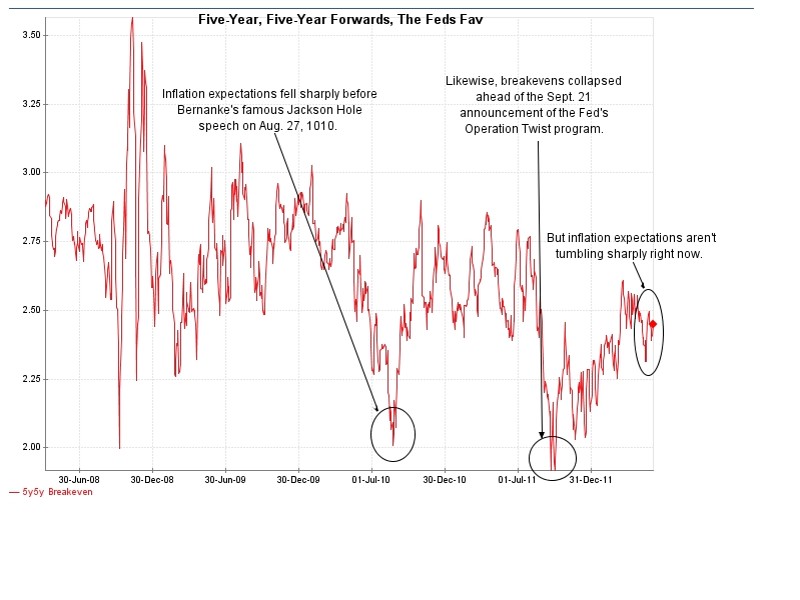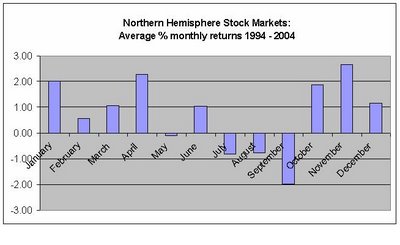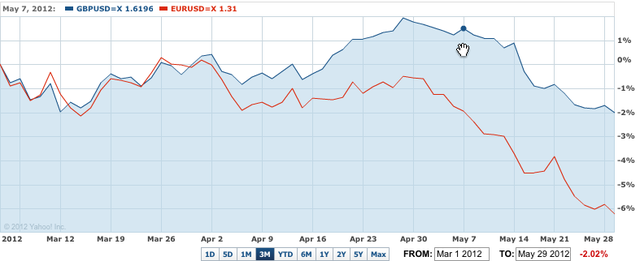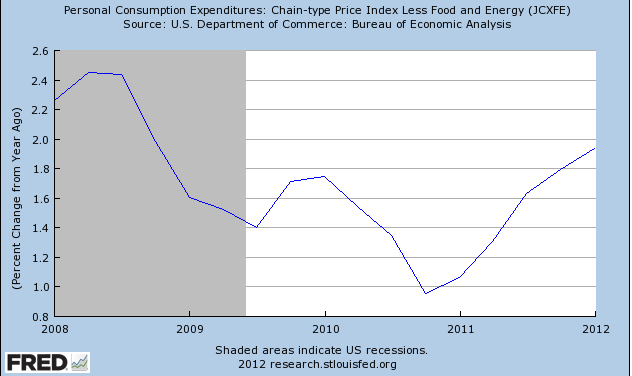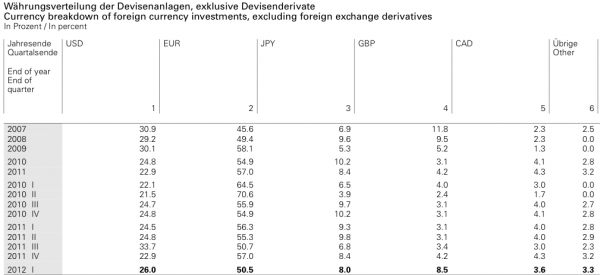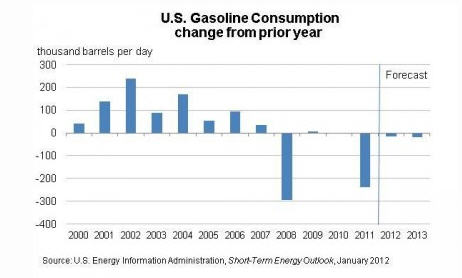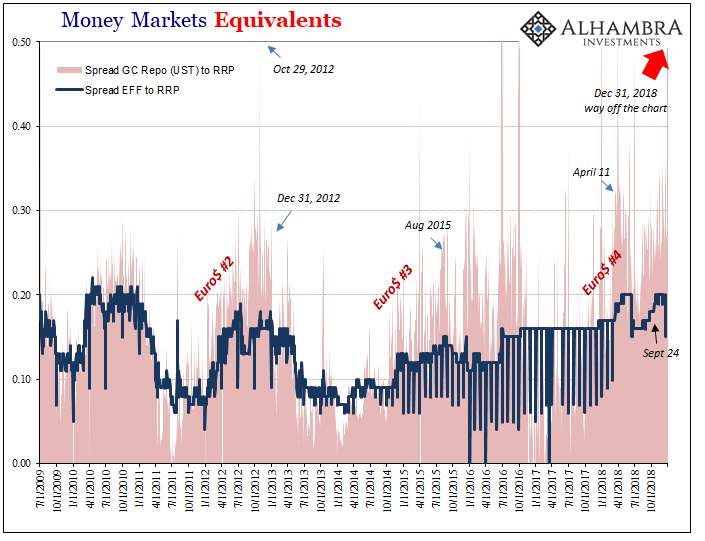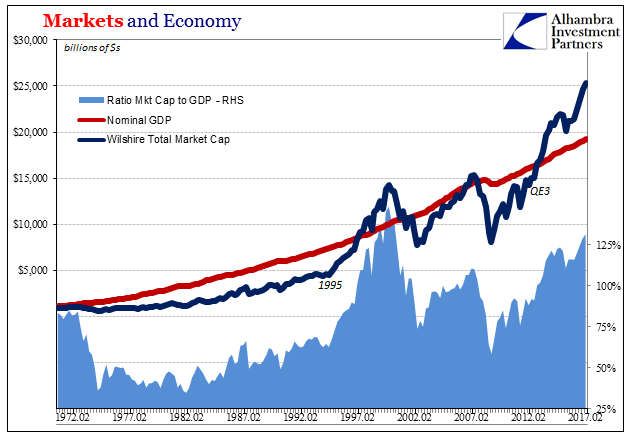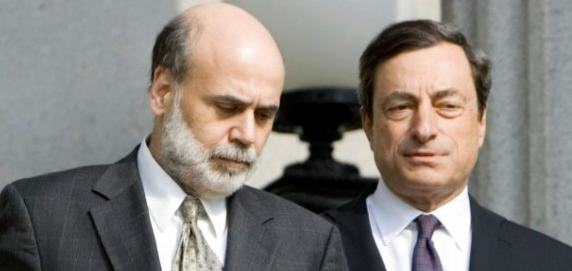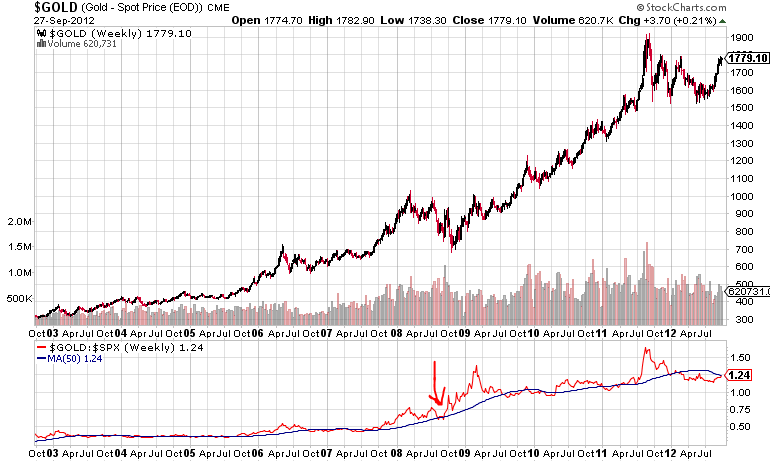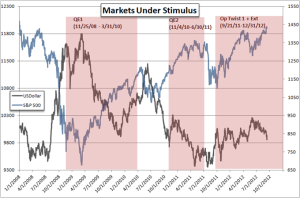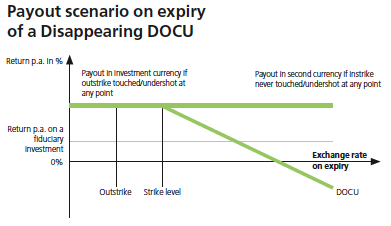Tag Archive: QE3
Brad DeLong on Jackson Hole and Quantitative Easing
Berkeley Professor Brad DeLong has delivered a nice allegorical entry in his type pad on a quick Quantitative Easing. Letting speak old greek mythological figures he hides his personal opinion. A half now completely written platonic dialogue on what the Federal Reserve is Doing — or not Doing — Right Now DeLong explains the …
Read More »
Read More »
Fed Violates its Own Inflation Targets. Should QE3 Be Postponed?
At this year’s Jackson Hole symposium, Ben Bernanke promised to help the economy via further easing if needed. We doubt his promises because because the Fed might contradict their inflation targets. Current levels of around 2 % for the consumer price inflation excluding food and energy (“core CPI“) and the deflator of the GDP …
Read More »
Read More »
The win of the pro-bailout parties in the Greek elections was no win for the SNB
The win for the pro-bailout parties in the Greek elections was no win for the Swiss National Bank (SNB), even if the fear of an immediate bank-run and extreme money flows into Switzerland are avoided. Also the fact that QE3 is not coming in the next weeks did not help the SNB.
Read More »
Read More »
Quantitative Easing Indicators, June 2012
The main drivers for demand for Swiss francs are the Euro crisis, but even more the behavior of American investors, who go out of the dollar in the fear of further bad US economic data and in the fear of Quantitative Easing. This will push down the dollar and safe-havens like the CHF, gold or the … Continue reading »
Read More »
Read More »
The “Sell in May, come back in October” effect and its equivalent for the SNB
The "Sell in May, come back in October" effect It is the same seasonal anomaly nearly every year: The statistically flawed (see here and here) Non-Farm Payrolls (NFP) report delivers some good winter readings with 200K new jobs, this time additionally fuelled by a weather effect; biased data that let hard-core Keynesian policy makers doubt Okun's law. Consequently the stock markets rally …
Read More »
Read More »
SNB switched from selling euros to buying euros, might sell GBP
As explained in our previous post, at least till May 4th the Swiss National Bank could have been a net buyer of GBP, USD and JPY selling Euros off their balance sheet. In the week of May 11, QE3 talk came up together with a bad Phily Fed reading. From then the SNB had to acquire … Continue reading »
Read More »
Read More »
The vicious cycle of the US economy or why the US dollar must ultimately fall again
Just some simple words about the vicious cycle of the US economy and the consequences on the US dollar: A stronger USD will not rescue the US economy, quite the contrary. US companies will not hire in the US, but outsource or hire overseas. If they hire in the US, due to the high number …
Read More »
Read More »
Is the play time over for the SNB ? SNB Buys Euros Again, but the EUR/CHF does not move a pip
As also noticed by Credit Suisse, the Swiss National Bank had to buy euros and sell Swiss francs in the week of May 11th to May 18th. Their recent easy strategy to sell euros and buy Swiss Francs and to diversify from euros into other currencies may not continue.
Read More »
Read More »
Is the SNB pegging away from the Euro to the SDR currency basket using their FX reserves ?
We reckon that the central bank has introduced an automatic peg mechanism which obliges them to buy euros at exactly 1.2010 and sell euros above this level (reasons and details here). If they sold more euros than they bought, they are happy to have offloaded some items of their overloaded balance sheet. If they bought more euros than they sold, however, there are some "superfluous" euros. Instead putting these euros on their balance sheet, they...
Read More »
Read More »
Keynesians vs. Anti-Keynesians: How price deflation has kick started the US growth
In recent posts Keynesians were criticized that hikes in the monetary base like Quantitative Easing (QE2) failed to lift the US economy, but it was the debt ceiling that helped to restore confidence in the US and that austerity can lead to GDP growth. Paul Krugman angrily replied that “even a huge rise in the …
Read More »
Read More »










